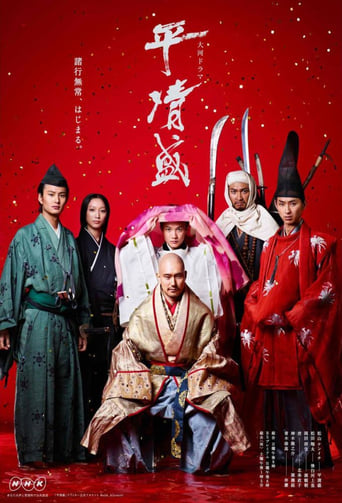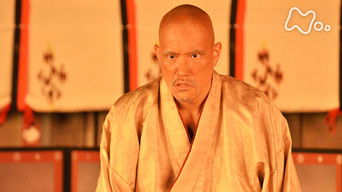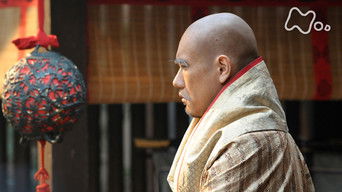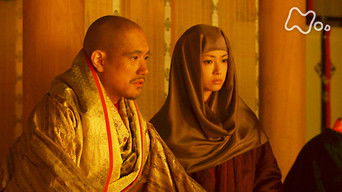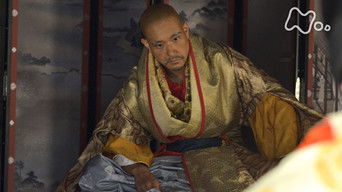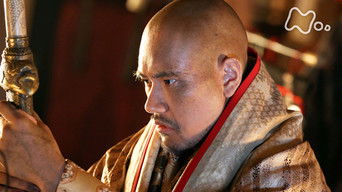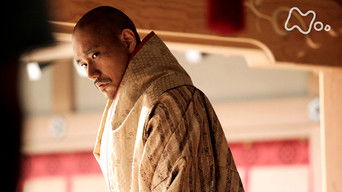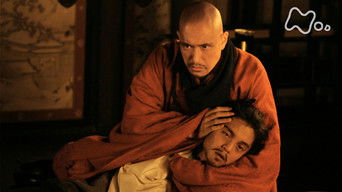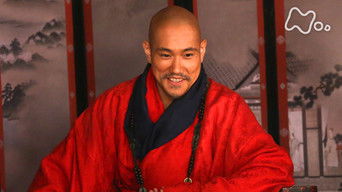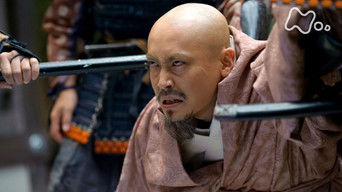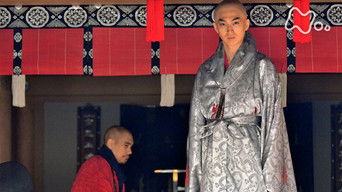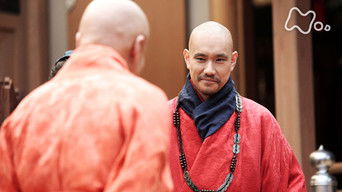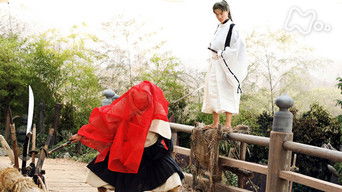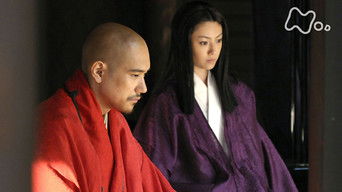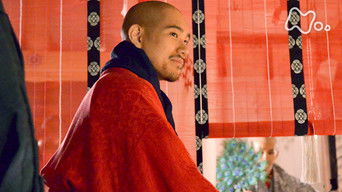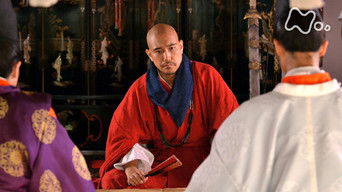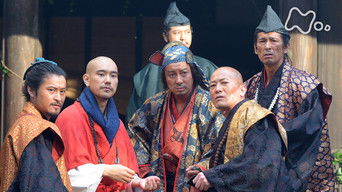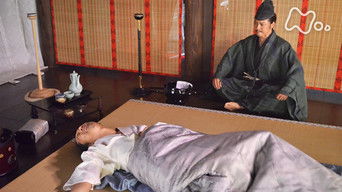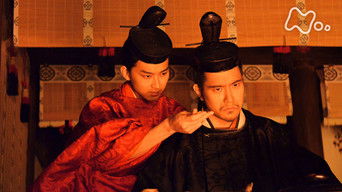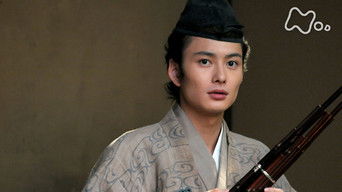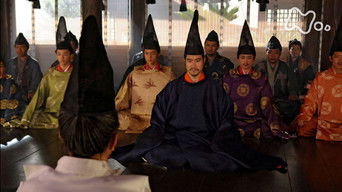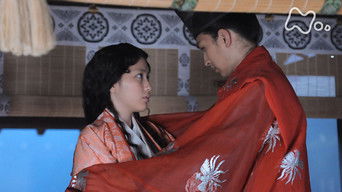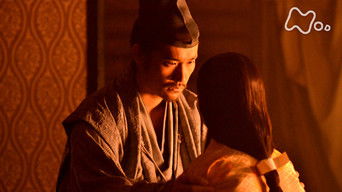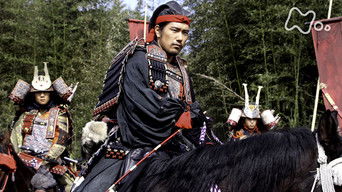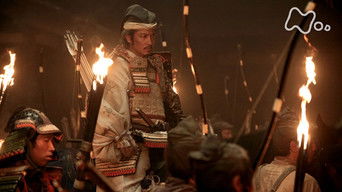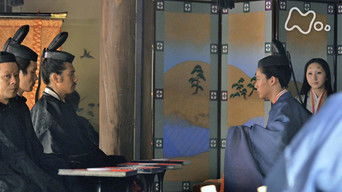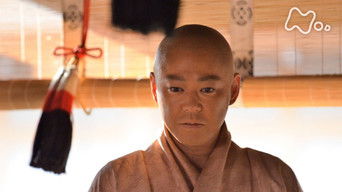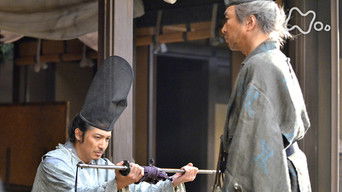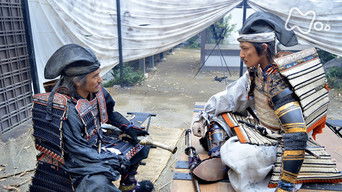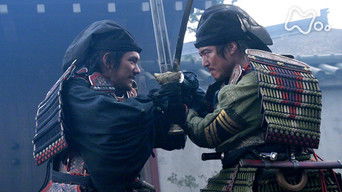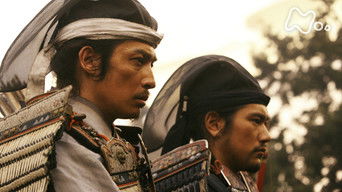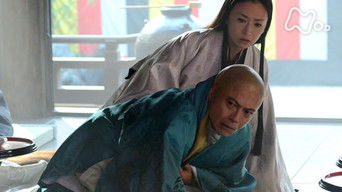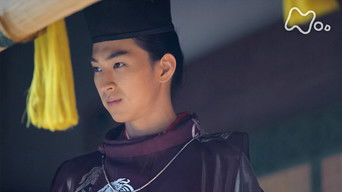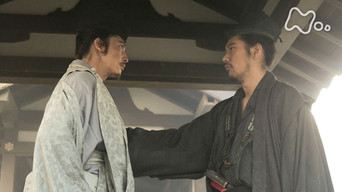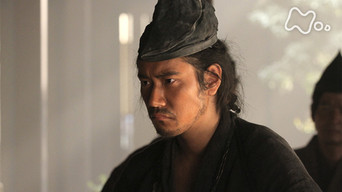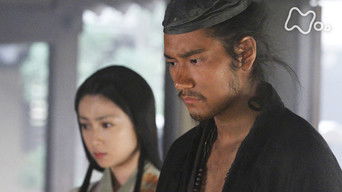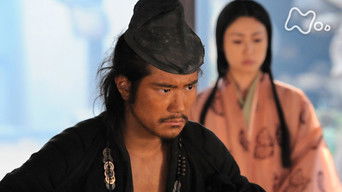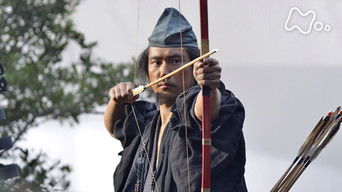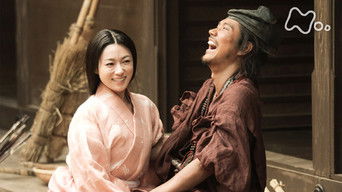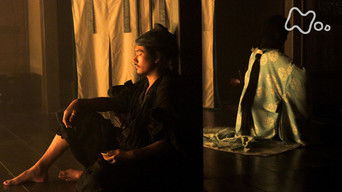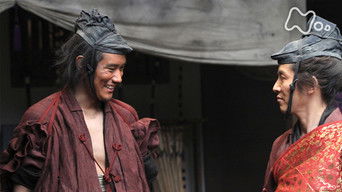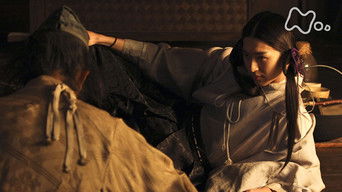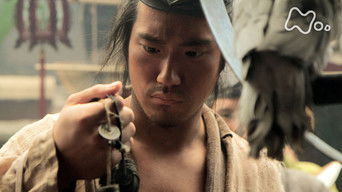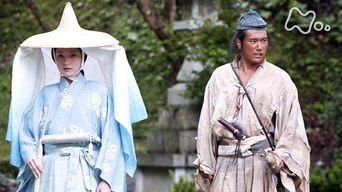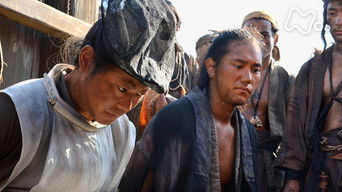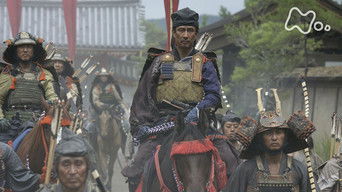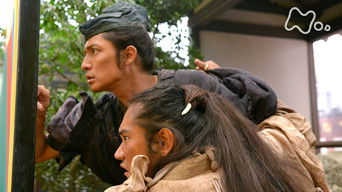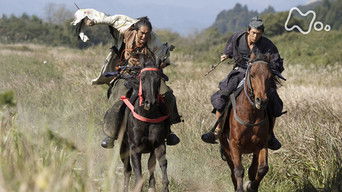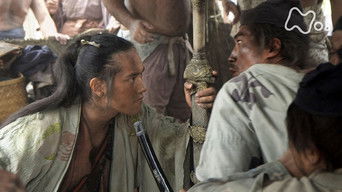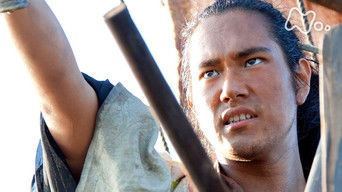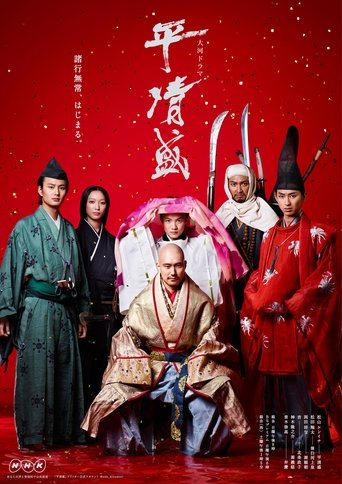Taira no Kiyomori Season 1
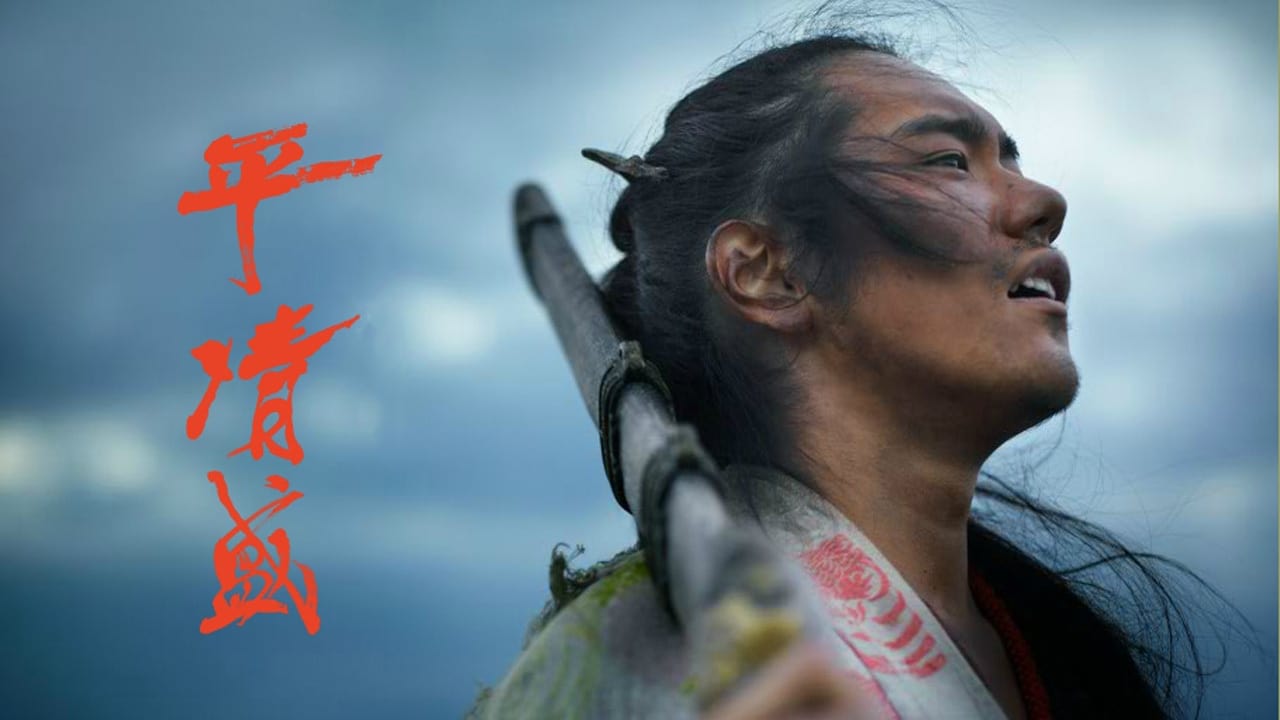
Villain or hero, Taira no Kiyomori changed Japanese history forever 900 years ago. Without ever knowing his real father, Kiyomori was raised as a samurai. Together with his stepfather, he wiped out piracy along Japan's western coast, becoming a full-fledged warrior samurai. In an age when samurai were looked down on as members of the lower class, Kiyomori was skillful at winning the hearts and minds of the people. By rounding up surrendered pirates and achieving other successes, Kiyomori eventually became the de facto ruler of Japan.
Watch NowWith 30 Day Free Trial!
Taira no Kiyomori
2012
Villain or hero, Taira no Kiyomori changed Japanese history forever 900 years ago. Without ever knowing his real father, Kiyomori was raised as a samurai. Together with his stepfather, he wiped out piracy along Japan's western coast, becoming a full-fledged warrior samurai. In an age when samurai were looked down on as members of the lower class, Kiyomori was skillful at winning the hearts and minds of the people. By rounding up surrendered pirates and achieving other successes, Kiyomori eventually became the de facto ruler of Japan.
Watch Trailer
With 30 Day Free Trial!
Taira no Kiyomori Season 1 Full Episode Guide
Kiyomori is struck down by a febrile illness. Kiyomori appears before Saigyo, formerly named Norikiyo, as a wraith, and learns the meaning of his life through dialogue with Saigyo. In Kyoto, people rush to Kiyomori's bedside and bring up their concerns over their future. Kiyomori finally passes away. After the passing of Kiyomori, the fate of the Taira family takes a turn for the worse. Tokiko throws herself into the sea with Emperor Antoku in her arms, and the entire Taira family ends up being destroyed at Dannoura. At the bottom of the sea, Tokiko sees the members of the Taira family standing, including Kiyomori with a sword in his hand.
Early in the following year in 1181, ill feelings towards the Taira family spread across the country. Meanwhile, the former Emperor Takakura, who has been an anchor to Kiyomori, passes away at the age of 21. While Kiyomori is losing his power, the cloistered Emperor Go-Shirakawa again appears before Kiyomori and provokes him. In Kamakura, Yoritomo is establishing a new samurai-oriented political system together with his followers. Kiyomori is delighted to learn that Yoritomo is following in the footsteps of Yoshitomo and Kiyomori. Kiyomori tells Go-Shirakawa that the struggle for supremacy among samurais will be intensified from now on.
After the loss in the Battle of Fujikawa, Kiyomori reluctantly gives in to Munemori's tearful appeal for restoring the capital to Kyoto. Learning Kiyomori's decision, Yoritomo no longer understands Kiyomori's thoughts toward a samurai-oriented country, and asks Benkei about Kiyomori's younger days. As he hears of Kiyomori's boldness and fearlessness, Yoritomo comes to realize that Kiyomori and Yoshitomo had the same ambition for the future as Yoritomo is now trying to achieve. Around the same time, the Taira forces accidentally burn down Todaiji Temple while trying to drive out the warrior monks.
In 1180, Kiyomori commands his followers to defeat Yoritomo under the name of the former Emperor Takakura. Although Yoritomo loses the battle against the Taira forces at Mt. Ishibashi, he vows to realize Yoshitomo's long-cherished wish to build a true samurai-oriented country with the backing of powerful anti-Taira samurais. On October 20, the Taira forces led by Koremori (Shigemori's son) and the Minamoto forces led by Takeda Nobuyoshi stand face to face near Fuji River--the Battle of Fujikawa. The Taira forces, however, flee in fear from the battlefield, mistaking the sound of water birds for a surprise night attack by the Minamoto forces.
Learning Prince Mochihito's plot, Kiyomori bursts in anger and captures Mochihito and his followers. While Kiyomori enforces the transfer of capital to Fukuhara for Emperor Antoku, Yoritomo finally rises up against the Taira family. Kiyomori has mixed feelings to learn of Yoritomo's move, but at the same time gets excited, thinking the time has finally come for the Taira and Minamoto families to fight for the summit over the nation's power. In September 1180, Kiyomori commands samurais across the country to defeat Yoritomo.
Kiyomori launches a coup d'etat by placing the cloistered Emperor Go-Shirakawa under confinement, and finally becomes the first samurai to seize control over the entire country. While Kiyomori manipulates the Imperial Court freely from Fukuhara, Prince Mochihito (Go-Shirakawa's son), who has been put in a miserable situation by Kiyomori, devises a plot to take up arms against the Taira family. Yoshitsune, the son of Yoshitomo and Tokiwa, is also gaining strength with Benkei, formerly named Oniwaka. On February 21, 1180, Prince Tokihito (Tokuko's son) ascends the throne from Emperor Takakura and becomes Emperor Antoku as Kiyomori hoped.
Shigemori, who has been suffering from anxiety of being caught between the cloistered Emperor Go-Shirakawa and Kiyomori, finally falls ill. After Kiyomori's daughter Moriko, who acted as the intermediary between the Fujiwara and Taira families, dies of illness, Go-Shirakawa plots to bring down the Taira family by joining hands with Motofusa. In the Taira family, Munemori (Shigemori's half brother) becomes the head of the family on behalf of Shigemori who has been sick. After the passing of Shigemori at the age of 42, Go-Shirakawa immediately confiscates Shigemori's territory, which provokes Kiyomori's anger.
Narichika, who has been exiled by Kiyomori, dies from starvation. Shigemori becomes worn down by the passing of his brother-in-law and from the considerations shown for the cloistered Emperor Go-Shirakawa. Around the same time, Kiyomori learns of Tokuko's pregnancy and prays for the safe delivery of the baby. Tokuko finally gives birth to a boy, the son of Emperor Takakura, who later becomes known as Emperor Antoku. In Izu, Yoritomo and Masako are trying to get permission for their marriage from Masako's father Tokimasa.
Kiyomori receives secret information that the cloistered Emperor Go-Shirakawa and his aides, including Narichika and Saiko, are plotting to overthrow the Taira family. Kiyomori bursts in anger and captures Saiko to extort a confession out of him. Saiko, however, outrages Kiyomori by saying things that rub Kiyomori the wrong way, and Kiyomori orders for the execution of Saiko. Narichika is also captured and killed off by Kiyomori, despite Shigemori's desperate plea for Narichika's life. Witnessing Kiyomori's mercilessness to those who stand in the way, Shigemori becomes fearful of Kiyomori.
In 1177, Saiko's son gets into a skirmish with Buddhist monks at a temple on Mt. Hakusan, and the incident escalates into a brawl, involving Buddhist monks of Enryakuji on Mt. Hiei. The cloistered Emperor Go-Shirakawa orders Shigemori to take up arms against the warrior monks, however, Shigemori's retainer accidentally hits the mikoshi (portable shrine) carried by the monks with an arrow, which triggers a new problem. To quell the disturbance, Kiyomori again leads his troops into Kyoto.
In 1174 in Fukuhara, Japan-Sung trade has already started. Kiyomori advises the cloistered Emperor Go-Shirakawa and Shigeko to visit Itsukushima Shrine to pray for the nation's prosperity. Meanwhile, Saiko and Narichika (Go-Shirakawa's aides) start to fear the growing power of the Taira family. Shigeko tells Saiko and Narichika to act as a bridge between Go-Shirakawa and the Taira family. However, after the passing of Shigeko in 1176, the power balance within the Imperial Court begins to fall apart. Around the same time in Izu, Yoritomo and Hojo Masako are gradually nurturing their love.
In 1172 in Fukuhara, Kiyomori with the backing of the cloistered Emperor Go-Shirakawa steadily advances construction work of a port, together with Usagimaru (Kiyomori's retainer) to prepare for the trading with Sung. Kiyomori orders Usagimaru to complete the construction as quickly as possible, however, Usagimaru condemns Kiyomori for acting out of self-interest, over his once held ambitions. The rift between Kiyomori and Usagimaru become irreparable.
In July 1171, Kiyomori succeeds in marrying off his daughter, Tokuko, to Emperor Takakura, thanks to the hospitality he offered to the cloistered Emperor Go-Shirakawa and Shigeko (Empress Dowager Kenshun). The Taira family enjoys the pinnacle of their prosperity. On the other hand, Tokitada, who serves as a chief prosecutor, sends spies throughout the town to monitor against people who would speak ill of the Taira family. Around the same time, Oniwaka, a Buddhist warrior monk, meets a boy in Kyoto who had deep involvement with Oniwaka in the past.
In 1170, Kiyomori invites the cloistered Emperor Go-Shirakawa to Fukuhara where he arranges a meeting between Go-Shirakawa and the people from Sung. Meanwhile, Sukemori, Shigemori's son, gets insulted by Fujiwara no Motofusa from a prominent family in the Imperial Court. Although Shigemori attempts to logically settle the situation, the members of the Taira family are unable to hold back their anger. Going over Shigemori's head, Tokitada, Kiyomori's brother-in-law, acts independently and retaliates against Motofusa.
While Kiyomori moves to Fukuhara, entrusting Kyoto to his heir Shigemori, the retired Emperor Go-Shirakawa enters the Buddhist priesthood. In 1169, the Imperial Court falls into chaos by Go-Shirakawa's incoherent order on the treatment of Narichika (Go-Shirakawa's aide and Shigemori's brother-in-law). Learning that Shigemori is unable to quell the disturbance, Kiyomori leads his troops into Kyoto and calms the turmoil. By Kiyomori's decisive action, Go-Shirakawa and the aristocrats are compelled to admit that samurai's military power is indispensable for resolving all the problems.
After recovering from his illness, Kiyomori enters the Buddhist priesthood with his wife Tokiko. Kiyomori decides to move his base to Fukuhara to live closer to a port, which surprises the Taira family. In February 1168, Prince Norihito, the son of the retired Emperor Go-Shirakawa and Shigeko, ascends the throne and becomes Emperor Takakura--the first Emperor related to the Taira family. However, after Shigeko is granted the title of Empress Dowager, the power balance within the Taira family begins to change. Meanwhile in Izu, Yoritomo, who is driven to despair after his son was killed, meets Hojo Masako, the daughter of Hojo Tokimasa from a local powerful family.
In 1168, Kiyomori is struck down by a febrile illness, which shakes not only the Taira family but also the Imperial Court and samurais across the country. The retired Emperor Go-Shirakawa, who learns of Kiyomori's illness while heading for Kumano, immediately returns to Kyoto. While lying in his bed, Kiyomori dreams of his late mother, Maiko, and his late biological father, the cloistered Emperor Shirakawa. In his dream, Kiyomori comes face to face with Shirakawa, and the two have a conversation.
In 1167, Kiyomori becomes the Chief Minister of the Imperial Court. At the celebration of Kiyomori's 50th birthday, aristocrats from prominent families, who are discontent with Kiyomori's dominance over the Imperial Court, appear and say sarcastically that the Taira family has military power but no understanding in aestheticism. Kiyomori proves them wrong by making his brothers dance and read poetry, and Kiyomori also starts to perform a dance himself.
In 1166, Kiyomori becomes the first samurai who reaches the position of a Major Counselor at the Imperial Court. Although some aristocrats reacted sharply against Kiyomori's unprecedented promotion, Kiyomori continues to extend power with the backing of Motozane, a Regent and son-in-law of Kiyomori. Meanwhile in Izu, Yoritomo becomes emotionally involved with Princess Yae, the daughter of Ito Sukechika from a local powerful family who is placed to keep Yoritomo under surveillance, while Sukechika is away for the sake of serving under Kiyomori in Kyoto.
It is 1164, Yoritomo, who was exiled five years ago by Kiyomori, has now turned 18 and lives with his retainer in Izu. Meanwhile, Kiyomori gains power in the Imperial Court under the rule of Emperor Nijo, who is in conflict with the retired Emperor Go-Shirakawa. Nijo suddenly falls ill and passes the throne to his son, Prince Nobuhito (who later becomes known as Emperor Rokujo) with hopes to eliminate Go-Shirakawa's influence over the Imperial Court. However, after the passing of Nijo and with the enthronement of Emperor Rokujo at the tender age of two, the power balance within the Imperial Court begins to fall apart.
In 1161, the retired Emperor Sutoku, who has been exiled to Sanuki where he is now living a quiet life, writes a hand-copied sutra for the former Emperor Go-Shirakawa with hopes to express apology. However, the sutra he sent to Go-Shirakawa is torn up and returned back to Sutoku. Also, triggered by the sudden death of his son, Prince Shigehito, Sutoku finally explodes with fury. Learning Sutoku's deeply-seated grudges, Kiyomori decides to dedicate sutras, known as "The Heike Nokyo Sutras," to Itsukushima Shrine in order to pray for the prosperity of the Taira family.
In 1160, Kiyomori is finally granted the long-sought rank which equals to that of an aristocrat, and many within the Taira family also enjoyed promotions. Meanwhile, Shigeko, Kiyomori's sister-in-law, is offered to marry Emperor Nijo, but flatly refuses it. One day, the former Emperor Go-Shirakawa, who is on bad terms with Nijo, sees Shigeko in the Imperial Court and falls for her at first sight. Before long, Shigeko becomes pregnant with Go-Shirakawa's child, which throws the Taira family into chaos.
Yoshitomo, who was defeated by Kiyomori, flees eastward but ends up being alone with Masakiyo, Yoshitomo's foster brother and most loyal aide, and the two commit suicide. In Kyoto, Yoritomo, who was separated from Yoshitomo while escaping, is captured and brought to Kiyomori. The members of the Taira family insist on killing Yoritomo, however, Kiyomori's mother desperately begs for Yoritomo's life, seeing her late son Iemori in Yoritomo.
Kiyomori declares his intention to show his obedience to Nobuyori instead of taking an immediate action against him, which surprises the members of the Taira family. While Yoshimoto is irritated by Kiyomori not rising up against Yoshitomo and Nobuyori, Kiyomori devises a plan to rescue the former Emperor Go-Shirakawa and the reigning Emperor Nijo. After successfully saving the emperors, Kiyomori faces the final battle against Yoshitomo.
In 1159, Yoshitomo finally decides to join hands with Nobuyori and rises in revolt against Shinzei--the Heiji Rebellion. Yoshitomo and Nobuyori place Emperor Nijo (Emperor Go-Shirakawa's son who has ascended the throne) and the former Emperor Go-Shirakawa under confinement, and set fire to the Imperial Palace. Kiyomori, who learns of the rebellion while heading for Kumano, immediately returns to Kyoto. Although Shinzei tries to hide in the mountain, he is found by his pursuers and commits suicide.
Yoshitomo feels chagrined at remaining in his low status, while Kiyomori is climbing up the ladder of success. Yoritomo, Yoshitomo's eldest son, meets Kiyomori for the first time and gets overwhelmed by his strong presence. Meanwhile, Fujiwara no Nobuyori, Emperor Go-Shirakawa's aide, holds Shinzei in check as he is gaining in power. As Yura's illness worsens, Yoshitomo tries to obtain medicine from Kiyomori, however, Yura tells Yoshitomo to never bow his head to the Taira family and passes away. While Yoshitomo is struck with deep grief from losing Yura, Nobuyori approaches Yoshitomo with plan to eliminate Shinzei.
Shinzei, who is actively engaged in political events, sends Kiyomori to Chinzei to raise money by collecting unpaid taxes. Meanwhile, Shigemori, Kiyomori's eldest son, not accepting Kiyomori following Shinzei--the person who ordered Kiyomori to kill his uncle, is reluctant with the marriage arranged by Kiyomori. After successfully fulfilling his duty in Chinzei, Kiyomori devises a plan to improve his status by using a tea set he obtained there.
Kiyomori and Yoshitomo are respectively ordered to cut off Tadamasa and Tameyoshi's heads by Shinzei who has now come to power in the Imperial Court. Although the two are torn between sorrow and duty, they finally make up their heart-rending decisions. After following Shinzei's order, Kiyomori is invited by Emperor Go-Shirakawa to his banquet where Go-Shirakawa tests Kiyomori's loyalty to him. Shinzei tells Kiyomori to bear all the burdens and become the country's valuable asset.
The Hogen Rebellion finally comes to an end with the victory of the Emperor Go-Shirakawa side. Yorinaga, who is seriously hurt while escaping, seeks help from his father but the cry for help goes unanswered and Yorinaga passes away. Tadamasa and Tameyoshi, who were defeated in the Hogen Rebellion fighting against Kiyomori and Yoshitomo, are captured and brought back to Kiyomori and Yoshitomo. Kiyomori asks Tadamasa to work together again for the Taira family, however, Shinzei gives a shocking order to Kiyomori and Yoshitomo.
On the late night of July 10, 1156, military meetings are held at both sides, the former Emperor Sutoku and the reigning Emperor Go-Shirakawa, where the two forces react differently on whether to launch a night attack on their enemy or not. On July 11, the battle between the two finally breaks out--the Hogen Rebellion. The battle is not simply a dispute over the Imperial succession, it is also the outbreak of interfamilial conflicts of the Fujiwara, Minamoto and Taira families.
In 1156, the former Emperor Sutoku and Yorinaga similarly oppressed, join together. Shinzei puts the two under suspicion of treason and commands the samurais to side to Emperor Go-Shirakawa. While Tameyoshi and Yoshitomo are divided over their decisions, Kiyomori, who had a talk with Emperor Go-Shirakawa alone, tells the members of the Taira family his intention of taking side with Emperor Go-Shirakawa. However, Yorimori, Kiyomori's half brother, hesitates to follow Kiyomori's decision.
Prince Masahito ascends the throne and becomes Emperor Go-Shirakawa, which throws the Imperial Court into chaos. Meanwhile, a dispute arises among the Minamoto family and the relation between Tameyoshi and Yoshitomo becomes worse. Emperor Go-Shirakawa goes into a frantic rampage after receiving a poem from the former Emperor Sutoku at his enthronement celebration. The retired Emperor Toba, who has fallen ill, hands Kiyomori a hand-copied sutra he wrote for Sutoku expressing apology. Kiyomori goes to deliver the sutra to Sutoku.
In 1154, as the reigning Emperor Konoe's illness worsens, the retired Emperor Toba regrets and wonders if the cause of illness is retribution for him not being in good terms with the former Emperor Sutoku. Kiyomori tries to help mend the relationship between Toba and Sutoku, however, to no avail as Konoe passes away in 1155 at the age of 17. At the Imperial Court, a meeting is held to decide the successor to the throne.
In 1153 after the death of Tadamori, Kiyomori officially becomes the head of the Taira family, however, he starts to doubt his abilities in following the great footsteps of his father. Although the Taira family establishes a new structure after Tadamori's wife, Muneko, became a Buddhist nun, Tokiko is not yet dependable enough to organize household matters, which prompts anxiety among the Taira family. Fujiwara no Ienari, who is concerned about the Taira family, devises a plan to hold a poetry party at the Imperial Court to introduce Kiyomori as the head of the Taira family and make Kiyomori read his poetry there.
While the internal power struggle within the Fujiwara family is heating up, Tadamori, who has been promoted after completing the reconstruction of Mt. Koya, is struck down by an illness. Meanwhile, Nariko plots to embroil the Heike family in the power struggle of the Fujiwara family, however, Kiyomori urges Tadamori to reject Nariko's order. Tadamori for the first time tells the members of the Taira family that his purpose of life was to build a samurai-oriented country. After declaring his intention of making Kiyomori the head of the Taira family, Tadamori passes away.
Iemori falls into Yorinaga's trap and dies from falling off his horse, which strongly shakes the Taira family. Tadamori, however, shows no sign of perturbation, and asks the retired Emperor Toba, who had ordered Tadamori to reconstruct the main hall of Mt. Koya, to let Kiyomori lead the reconstruction instead. A year later, Nariko, who has become Empress Dowager Bifuku, hints to Tadamori that he might be granted the title equal to the aristocrats after the completion of the reconstruction. Meanwhile, Yorinaga appears and makes an insulting remark on Iemori to Tadamori.
Kiyomori, after being released, faces scolding from his younger brother, Iemori, who flatly says that Kiyomori's behavior was inappropriate as the heir of the Taira family. Yorinaga, who wanted to drive Kiyomori into a corner at the Gion incident, approaches Iemori who was performing a dance at a festival in place of Kiyomori. Meanwhile, Kiyomori bumps into Yoshitomo at a market, and while they are drinking together, they encounter a woman dressed in shabby clothes, named Tokiwa, who later becomes deeply involved with the Taira family and the Minamoto family.
In 1147, when Kiyomori and the members of the Taira family visit Gion Shrine to pray for the prosperity of the Taira family, they get into a skirmish with armed priests. The incident escalates into a serious political problem, involving the Imperial Court, temples, shrines, and samurai families. While Yorinaga and Michinori (who renamed to Shinzei after entering the Buddhist priesthood) conflict with each other over the treatment of Tadamori and Kiyomori who are under detainment, the retired Emperor Toba decides to talk with Kiyomori directly.
In 1145, Tamako, who has become a Buddhist nun, is struck down by a serious illness. The retired Emperor Toba loses his composure and orders samurai serving under the Emperor to find narcissus flower to comfort Tamako, which is not normally around in this season. While Kiyomori is looking for the flower, he runs into Yoshitomo who is on the way to deliver the flower to the retired Emperor Toba. Tamako passes away after receiving the flower. Around the same time, Kiyomori remarries Tokiko, his late wife Akiko's apprentice, and Yoshitomo marries Princess Yura.
Emperor Sutoku falls into Nariko's trap and passes the throne to Emperor Konoe, the son of Nariko and the retired Emperor Toba. Meanwhile, Akiko becomes seriously ill and passes away. Seeing Kiyomori frantically pounce on Buddhist priests who were unable to save Akiko, Tadamori feels that Kiyomori has the same fierce temper as his biological father, the late cloistered Emperor Shirakawa.
Tamako (Empress Dowager Taiken), wife of the retired Emperor Toba, gets upset and clutches at Nariko for bringing up unfavorable rumors surrounding Prince Masahito's birth. On that night, Norikiyo, who has a secret crush on Tamako, visits Tamako to comfort her, but becomes beside himself learning of her continued feelings toward the retired Emperor Toba, and unintentionally wrings her neck. The retired Emperor Toba, however, was indifferent and does not blame Norikiyo for this incident.
In 1138, Akiko gave birth to her and Kiyomori's first child—a baby boy. Now, an heir was born to the Heike family heir, and the entire clan rejoiced at the news of this auspicious event.
In 1136, Kiyomori learns that Tadamori is illegally trading with Sung and keeps it secret from the Imperial Court. Meanwhile, Fujiwara no Yorinaga, the second son of Tadazane who is known for his all-or-nothing personality, is assigned as the Minister of the Center, which eventually makes the already unstable situation in the Imperial Court worse. Yorinaga finds out about the illegal trading and summons Kiyomori to his place. Kiyomori, however, suggests to Yorinaga for Japan to emulate the prosperous country of Sung, pointing out Japan's wrong political structure.
The Taira clan finally succeeds in subduing the pirates, however, Tadamori is not granted the rank equal to the aristocrats. Kiyomori, on the other hand, gets promoted and pays a visit to Tadazane. On the way back home, Kiyomori and Morikuni, fisherman-turned-samurai, encounter Takashina no Motoaki, a lower-class aristocrat, and his daughter, Akiko. Motoaki immediately takes a liking to Kiyomori and asks him to take Akiko as his wife. Although Akiko feels reluctant to marry Kiyomori because of her low status, she gradually falls for Kiyomori as he reveals his honest feelings toward her.
Amid the battle against the pirates, Taira no Moriyasu gets seriously hurt from protecting Kiyomori, and the Taira clan once returns to their base. Kiyomori, however, goes back to the Sea alone being mad at his cowardliness, where he is saved from his sinking boat by Takashina no Michinori. Meanwhile, Yoshitomo, who is on his way eastward from Kyoto, encounters Yura Gozen, daughter of the chief priest of Atsuta Shrine. Back at the Imperial Palace, Nariko from a middle-class aristocratic family becomes pregnant with a child of the retired Emperor Toba. Kiyomori and Michinori are captured by the pirates and taken to the giant vessel.
In 1135 at the Imperial Court, aristocrats are discussing countermeasures against pirates who are raising havoc in the Seto Inland Sea. Despite Tadazane's recommendation to place the Minamoto clan to expel the pirates, the retired Emperor Toba, who puts his trust in Tadamori, assigns the Taira clan to lead the punitive expedition. Tadamori, who wants to make Kiyomori his successor, orders Kiyomori to join the expedition, going against the opposition of Tadamasa. After arriving at the Sea, a giant vessel appears before Tadamori and Kiyomori.
Tadamori becomes the first samurai granted a title which allows him to enter the Imperial Palace in recognition of his loyalty to the Imperial Court, which brings joy to the Taira clan including Kiyomori. However, some aristocrats are not pleased with Tadamori's promotion, and Fujiwara no Tadazane from a prominent family in the Imperial Court, plots to make a sneak attack on Tadamori by maneuvering Tameyoshi.
Heita, renamed as Kiyomori, spends days fighting against pirates in the Seto Inland Sea and restoring stolen food to fisherfolk. Kiyomori, however, is mistaken as a pirate and sent to Kyoto where he is reunited with Tadamori. Although Tadamori tries to place Kiyomori to guard the Imperial Palace, Kiyomori refuses it saying he wants to live his own life. One day, Kiyomori is called to stop by a man named Minamoto no Yoshitomo, the son of Tadamori's longtime foe Tameyoshi, who later becomes Kiyomori's lifelong rival. Yoshitomo challenges Kiyomori on deciding which of the Minamoto clan and the Taira clan is superior to the other by comparing their horseback riding skills.
Heita, after reaching adulthood, wanders around gambling parlors being frustrated with his ironic fate of having two fathers: Tadamori as his foster father and the cloistered Emperor Shirakawa as his biological father. People consider Heita to be disreputable, however, Tadamori continues to treat Heita as the heir of the Taira clan, which worsens the relations between Tadamori and his brother, Tadamasa. One day, a fisherman close to Heita is captured by the Emperor Shirakawa for breaking the law that prohibits killing animals set by the Emperor.
In 1118 in Kyoto amid the time of confusion, Taira no Tadamori, the heir of the Taira clan, spends days doing dirty works to capture robbers under orders of the Imperial Court. One day, he encounters a pregnant woman named Maiko, who is on the run to protect her unborn baby, a child of the cloistered Emperor Shirakawa (who although retired is still the most powerful,) from being murdered. Tadamori secretly provides shelter to Maiko, while shaking off the pursuit from Minamoto no Tameyoshi, the head of the Minamoto clan, who is searching for her under Emperor Shirakawa's order. Maiko eventually gives birth to a baby boy, Heita, who later becomes known as Taira no Kiyomori.
Free Trial Channels
Seasons


